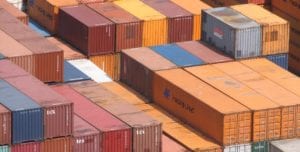The country’s trade balance for May 2016 came in at a surplus of R18.7 billion. The trade account’s year to date position has improved to R-27.5 billion when comparing it to May 2015 (R-29.8 billion) due to exports growing faster than imports. Exports grew year on year by 10.2%, while imports grew by 3.4%. A trade surplus was expected by the market.
This is according to Karl Götte, Head of Standard Bank Commercial Banking. “The RMB/BER Business Confidence Index fell to 32 in the second quarter, the lowest level since the fourth quarter of 2009, when the index was 28. The latest retail survey results revealed that business challenges have waned on business confidence. Rising input costs and lower pricing power have weighed on overall profitability of businesses – mainly retailers. Growth in retail sales volumes slowed during the second quarter with the pressure felt in durable goods. Despite the 1.2% contraction in GDP in the first quarter of 2016, the trade sector grew by 1.3%,” he adds. The Brexit decision sent shockwaves through international markets as previous consensus indicated that the UK would have decided to remain within the EU. The decision to leave after 43 years of membership resulted in volatility in global financial markets with the pound sterling plummeting to a 31 year low against the dollar. The decision is expected to have adverse impact on South African exports to the UK – particularly within the agricultural sector.“South Africa imports 3.3% of total merchandise from the UK and exports around 3.8% of total merchandise to the UK. It is expected that South Africa would have to re-negotiate trade agreements with the UK however; this would not be an immediate decision. Should the trade linkages with the UK react negatively on the back of the Brexit decision, this could have a negative impact on our overall current account balance.
While Reserve Bank Governor Lesetja Kganyago pointed out that this decision is unlikely to result in a recession, it is expected to add further pressure on South Africa’s already slowing economic growth.” “The latest drop in business confidence coupled with the Brexit decision has highlighted the importance of having a diversified business model. Turbulent market conditions, however, do give rise to opportunities.”






